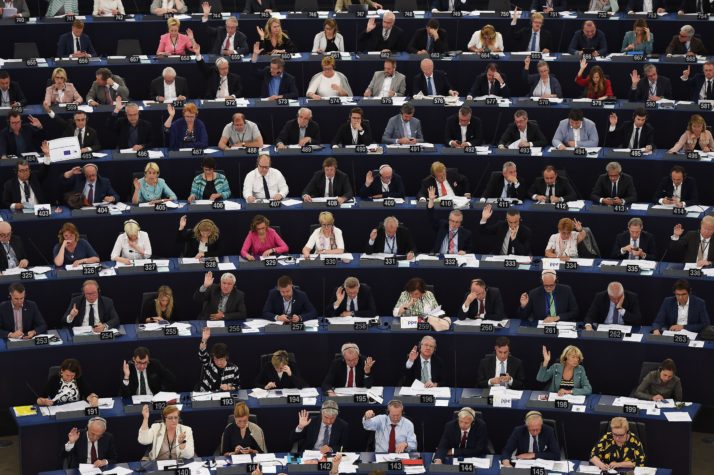The honour is mine
MEPs’ side jobs and the reputation of the Parliament

Source of the photo: AFP
In Ancient Rome, only wealthy people could be chosen as consuls. It was the highest elected political office for the Roman Republic, therefore considered as the greatest honor during someone’s political career. The wise Romans knew very well that politicians making their life exclusively out of political revenues could be easily corrupted and having no experience in real jobs could seriously limit their insight, so they preferred those candidates who used to exercise something different before entering into politics.
We, Europeans have always struggled with the shadow of the ancient Romans and the need to think about something new that our brilliant ancestors haven’t invented yet. But maybe it is high time we admitted that we shouldn’t bother to renew already great institutions. The concept of the consulship might be a good example of that, but only if we apply the whole approach.
The Transparency International has published this week an extremely interesting report about the side jobs that Members of the European Parliament exercise. According to the declarations, 31 percent of the MEPs have additional revenues. In total, they have earned more than 41 million euros of 1366 side jobs since the beginning of their current term. Some of them have gained more than 1 million euros and hold more than 10 positions.
Officially, MEPs are allowed to have side jobs in order to “stay in touch with their profession and to return to a previous job when they leave office.” That is completely reasonable and understandable. Even the Romans would have agreed with its wisdom, with some restrictions, of course. The maintenance of an already existing SME or cabinet certainly doesn’t require that much effort. Nor does it shake up one’s political career if they occasionally give some lectures at a university or continue to sit in the board of a foundation.
But I seriously doubt that directors of huge telecommunications firm or hospital would have time to think about European legislation or dutiful MEPs would have energy to run a big business. Don’t take me as naïve, I know very well that it is mostly the assistants and advisors who prepare the legislation. But I do know MEPs who make their best to be rapporteurs on important files and become the face of important campaigns or political issues.
Not to mention the fact that all of them earns around 8500 euro basic salary plus 4500 euro expense payment (what they have just refused again to be held accountable for, but that would be the topic of another blog post). It’s a fair payment for an and highly respected job, let’s be honest. But this time it is not the amount I want to address, but the prestige.
Less than one year before the next European Parliament elections, it would be great to talk a bit more about the reputation of the institution which is the only one in the EU that conforms the principle of democratic legitimacy. The MEPs are meant to represent the interests of European citizens and to counterbalance the influence of national governments.
If they continue “moonwalking” (having several side jobs in the public sphere and earning good money next to their political career), the European Parliament won’t have any moral stance to criticize corrupt government officials in member states, nor any leverage to act against them. If they continue moonwalking, Eurosceptics can easily question the existence and the need for supranational European institutions. If they continue moonwalking, the European citizens won’t feel that Europe means a solution to their disillusionment with national politics.
I truly hope that the political groups in the Parliament will soon learn the lesson from the history book and apply both criteria of consulship when they look for new candidates for the 2019 elections. Having experience and wealth is not enough on its own to be a good politician. They should perceive it as the highest level of the cursus honorum.
